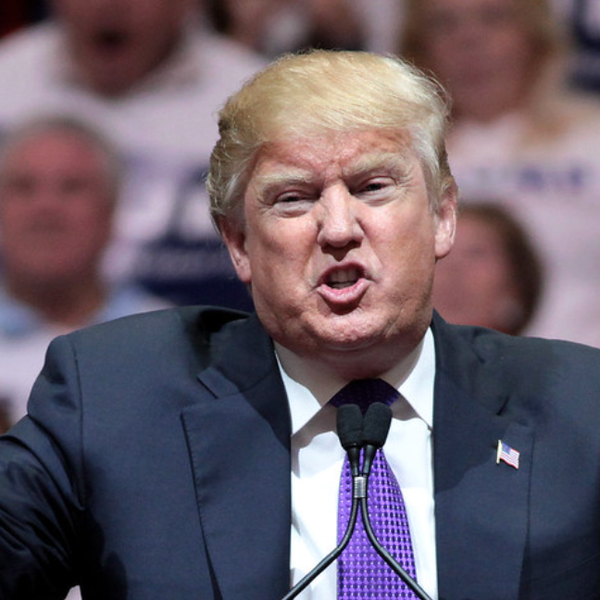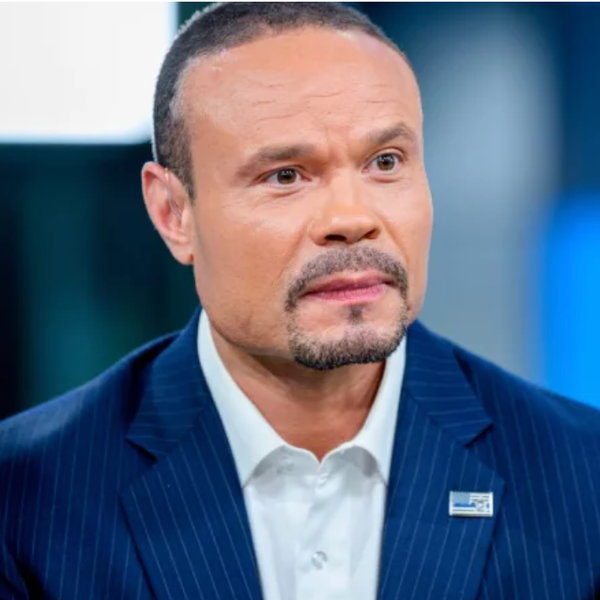
Reprinted with permission from Alternet.
There’s no lack of comments by ex-FBI Director James Comey that President Trump sought to end the FBI’s investigation into Michael Flynn, his former national security adviser, over unreported contacts with Russia. But what may be most revealing about Comey’s testimony before the Senate Intelligence Committee were the subjects he refused to discuss in a public setting.
Comey declined to answer questions about the involvement of Attorney General Jeff Sessions, whether there were secret back channels to Moscow, whether the investigation had grown beyond Flynn, whether Russian banks and Trump’s son-in-law Jared Kushner were involved, whether there were other unreported meetings with Russians, whether Trump’s team used encryption to hide their communiqués, and whether they destroyed any evidence.
Those and other unanswered questions go far beyond whether Trump was lying in his remarks and reasons for firing Comey, which are more focused on obstructing an FBI investigation. While one can ask why Trump would lie if he simply felt sorry for Flynn, the list of questions Comey could not answer outside a closed briefing suggests there are bigger actions, stakes and consequences in play.
Take a look at the following list of 10 questions. Why can’t Comey answer these questions in public? Does it concern national security? Could it undermine a federal grand jury already questioning suspects? Does it mean the FBI investigation has expanded into looking at all of Trump’s ties to Russia, not just collusion in the 2016 campaign?
1. What is Attorney General Jeff Session’s involvement? Sen. Ron Wyden (D-OR), asked Comey why the FBI’s top officials decided not to discuss the “president’s actions” with Sessions, who recused himself from the investigation into the Trump campaign’s ties to Russia. “What was it about the Attorney General’s own interactions with the Russians, or his behavior with regard to the investigation, that would have led the entire leadership of the FBI to make this decision?” Wyden asked. Comey replied, “Our judgment, as I recall, was that he was very close to and inevitably going to recuse himself for a variety of reasons. We also were aware of facts that I can’t discuss in an open setting that would make his continued engagement in a Russia-related investigation problematic.” What could those facts be?
2. Was Trump setting up a secret channel to Moscow?Sen. Martin Heinrich (D-NM), asked whether the Trump transition team or incoming White House was trying to set up “a sort of back-door communication channel with the Russian government using their [Russian] infrastructure, their devices or facilities?” Comey replied, “I’m not going to comment on whether that happened in an open setting. But the risk is — primary risk is—obvious: you spare the Russians the cost and effort of having to break into our communications channels by using theirs.” Did Trump seek to or set up a private hot line?
3. Was the FBI investigation into Flynn growing? Sen. Angus King (I-ME), asked Comey if the Flynn probe had grown, suggesting there were other issues besides whether it involved Trump. “With regard to the question of him being under personal — personally under investigation, does that mean that the dossier is not being reviewed or investigated or followed up on in any way?” King asked. Comey dodged in his reply. “I can’t comment either way. I can’t talk in an open setting about the investigation as it was when I was the head of the FBI. And obviously it’s, it’s Director Mueller’s, Bob Mueller’s responsibility now, so I just, I don’t know.” King followed up by twice asking in the open if Flynn “was and is a central figure in this entire investigation of the relationship between the Trump campaign and the Russians?” Comey replied he couldn’t talk about it. Who else is under FBI scrutiny?
4. Were Russian banks now part of the FBI inquiry? This was another question from King. “What do you know about the Russian bank, VEB?” King asked, prompting Comey to reply, “Nothing that I can talk about in an open setting. I mean, I know it…” King then interjected, “That takes care of my next three questions.” King was referring to Sergey Gorkov, chairman of Vnesheconombank, or VEB, a Russian development agency that has been under U.S. sanctions since July 2014. Gorkov, an associate of Russian president Vladimir Putin, met in December with Jared Kushner, Trump’s son-in-law and a White House advisor. What other business might Trump or Kushner have with VEB or other state-connected banks?
5. Does Comey believe Trump colluded with Russia?That question came from Sen. Tom Cotton (R-AR), who, like many Republicans on the Intelligence Committee, did his best to deflect attention from Trump and downplay the FBI investigation. He asked Comey flat-out, “Do you believe Donald Trump colluded with Russia?” Comey replied, “That’s a question I don’t think I should answer in an open setting. As I said, that — we didn’t — that (ph) when I left, we did not have an investigation focused on President Trump. But that’s a question that’ll be answered by the investigation, I think.”
Cotton pushed back, asking, “Has anything changed since we last spoke?” To which, Comey replied, “I just don’t want to go down that path, first of all, because I’m not in the government anymore, and answering in the negative, I just worry, leads me deeper and deeper into talking about the investigation in an open setting.” Did the FBI’s early work convince Comey that Trump’s campaign had colluded?

6. Was the FBI intercepting phone calls from Trump’s team? Here, too, Cotton tried to pressure Comey into saying the FBI was somehow monitoring phone calls from Trump’s staff with Russians. “There was a story on January 23rd in the Washington Post that says, entitled, ‘FBI reviewed Flynn’s calls with Russian ambassador but found nothing illicit.’ Is this story accurate?” Cotton asked. Comey replied, “I don’t want to comment on that, Senator, because I’m pretty sure the Bureau has not confirmed any interception of communications. And so I don’t want to talk about that in an open setting.”
Cotton kept pushing, all but prompting Comey to say that another intelligence agency had been tracking the Trump team calls. “I don’t think I can talk about that in an open setting,” he said. “And again, I’ve been out of government, now, a month, so I don’t — I also don’t want to talk about things when it’s now somebody else’s responsibility. But maybe in the, in the classified setting, we can talk more about that.” Which other intelligence agency was it?
7. Was Flynn on the verge of being charged or cutting a deal? Cotton also pressed Comey to say what was the upshot of the FBI’s investigation into Flynn. “Did you ever come close to closing investigation on Mr. Flynn?” he asked. Comey replied, “I don’t think I can talk about that in an open setting, either.” The question here is not whether Flynn violated foreign agent laws by his discussions with Russia—many legal experts have said he had, just as Comey called the FBI’s investigation of Flynn “a criminal inquiry.” The question is, was Flynn cooperating with the FBI as it turned to other targets? What might Flynn be offering the FBI?
8. Did Trump’s campaign have other unreported meeting with Russians? That was the first in a series of question from Sen. Kamala Harris (D-CA), a former prosecutor and state attorney general. “Are you aware of any meetings between the Trump administration officials and Russian officials during the campaign that have not been acknowledged by those officials in the White House?” she asked. He replied, “Even if I remember clearly, that’s not a question I can answer in an open setting.” What other meetings were there?
9. Did Trump’s campaign use encryption to communicate with Russians? Harris then asked that fascinating question, suggesting the campaign staff were amateurs in the world of espionage. “Are you aware of any efforts by Trump campaign officials or associates of the campaign to hide their communications with Russian officials through encrypted communications or other means?” she asked. He replied, “I have to give you same answer, Senator.” Did they really think they would not get caught?
10. Did Trump’s team destroy any evidence of illegal activity? This short exchange suggested another federal offense on par with obstructing the FBI investigation into Flynn. Harris asked, “In the course of the FBI’s investigation, did you ever come across anything that suggested that communications, records, documents or other evidence had been destroyed?” Comey replied, “I think I’ve got to give you the same answer, because it, it would touch investigative matters.” Harris continued by asking the same question: “And are you aware of any efforts or potential efforts to conceal communications between campaign officials and Russian officials?” Comey gave the same reply. “I think I have to give you the same answer, Senator.” Does the FBI have evidence of a Trump coverup?
What was Comey suggesting with all these non-answers? What were Democratic senators telegraphing by raising these topics? One can certainly speculate. Is this the way Democrats can signal to the public and press what is going on behind closed doors and where this is headed? Is this Comey’s way to signal where the FBI should next turn its attention? What seems clear is this affair is deepening and becoming far more serious than Trump being a good guy who was trying to help Flynn, a loyal campaign player.
Whatever really hapened in the campaign between Trump’s team and Russia, just like the full extent of Trump’s relationship with Russia in his business empire, has yet to be known. The same is true of Russia’s interventions in other areas of the 2016 election beyond the e-mail hacking of the Democratic Party and Clinton campaign, and state election office computers and those of their contractors. This story isn’t ending, it’s getting deeper and darker.
Steven Rosenfeld covers national political issues for AlterNet, including America’s democracy and voting rights. He is the author of several books on elections and the co-author of Who Controls Our Schools: How Billionaire-Sponsored Privatization Is Destroying Democracy and the Charter School Industry (AlterNet eBook, 2016).
This article was made possible by the readers and supporters of AlterNet.








